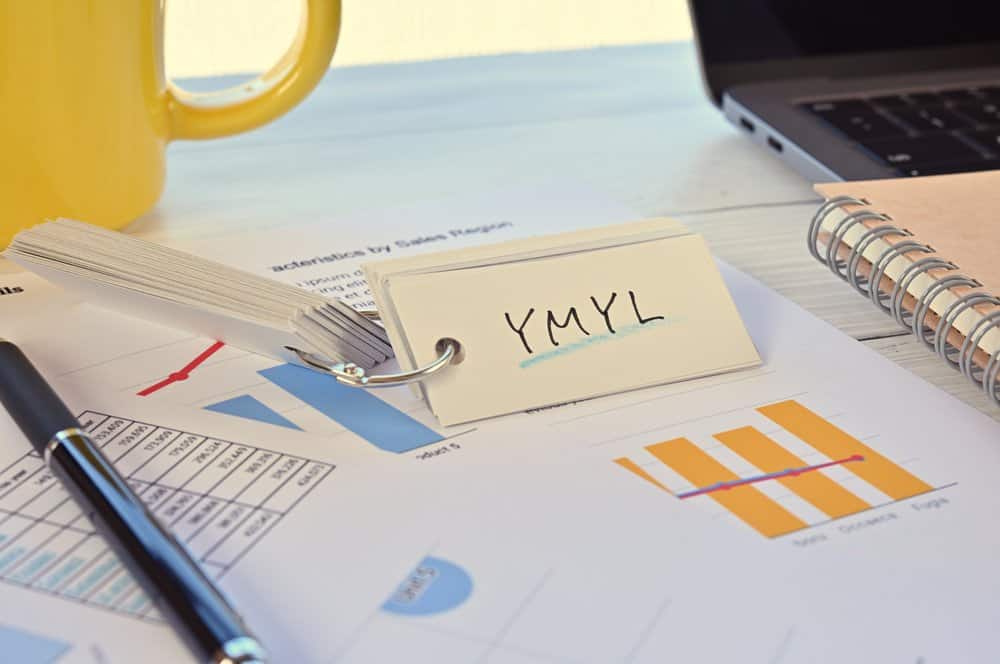
YMYL: what exactly does it stand for, and why does it matter? YMYL stands for Your Money or Your Life.
This is an acronym that’s relevant to SEO, so it’s something businesses need to understand.
When someone goes to a search engine, they want to find information on a certain topic or perhaps answers to a question. If they receive outdated or incorrect information, it can impact their real life.
If content falls into this category, then Google classifies it as Your Money or Your Life content.
What that boils down to is that YMYL content has the potential to impact someone’s finances, safety, health or happiness.
Google introduced this concept initially in the first version of the Search Quality Evaluator Guidelines or SQEG. The guidelines were supposed to be a way for independent contractors to determine the quality of their search engine results. The guidelines, at the same time, offer insight into what Google views as important in rankings.
The following are more specific things to know about YMYL and how it plays a role in the content you publish.
More About YMYL Pages
Google provides examples of what it views as YMYL pages. These include:
- News and current events
- Pages related to the law, government or anything related to the citizenry
- Financial-related pages. This might include content that provides advice about loans, investments, insurance, or banking.
- Shopping
- Health and safety. These pages can include information about being prepared for emergencies, hospitals, drugs, or health conditions.
- Groups of people.
- Fitness and nutrition
- Housing information
The above list isn’t exhaustive, but it does give a bit more of an overview of what YMYL pages include, which is broad.
Google wants to deliver content that answers the query of the user and can be trusted. Their goal is to provide a good experience to their users through the provision of relevant, trustworthy information.
With this in mind, there’s another acronym to be aware of—EAT. EAT stands for expertise, authority, and trustworthiness.
This means that Google is going to consider the expertise of the people who publish your content, the trustworthiness of your content, and the authority of your website.
Google says they have high-quality standards for YMYL pages based on EAT because the content can impact someone’s life.
In one of the more recent updates by Google, health and wellness-related sites seemed to be the most impacted, although Google didn’t confirm this.
By creating content with EAT in mind, if you’re a YMYL page, you have a better chance of ranking well.
Expertise
As part of EAT, the first thing you want to do is establish yourself as an expert in your niche or field. Luckily, one of the best ways to do that is by publishing content. The more quality content you produce, the more you’re positioning yourself as an expert and an authority.
You should create a bio for yourself that you add to your site and that links to your name on all the articles you publish.
Provide a little information about who you are, what you do, and what your experience is.
If you have any certifications, you should share them in your bio, and the same is true if you have a degree.
You should also have a picture of yourself in your bio.
Authority
To establish yourself as an authority, there are a lot of things you can do. For example, if you have good reviews for your work, maybe you include snippets of those on your bio.
If you can get influencers to endorse you, that’s a great way to establish authority too.
Trustworthiness
The T in EAT is for trustworthiness.
What this generally means is that you’re establishing yourself as a trustworthy and reliable source for information.
You need to make sure that everything you publish is factually accurate, and it can be a good idea to have someone review your work.
You also want to include authoritative sources in your work, such as links to .gov or .edu sites.
Having a secure website is another part of trustworthiness.
Creating High-Quality Content
Creating high-quality content is something you should be doing consistently if you’re a YMYL page.
So what exactly does that mean?
Your content is helpful to the people searching for it.
Your priority with every piece of content you create should be that it provides true value to your targeted audience.
Specific Ways to Improve EAT
While some of these have been generally touched on above, the following are some specific ways to improve EAT for your site, particularly if you fall into the category of YMYL.
- Create bio pages for yourself and anyone else who contributes to your site. You should give everyone a byline. In the past, a lot of sites preferred ghostwriters, but now it’s much better to identify your writers and highlight their credentials. A good bio includes a writer’s full name, photo, title, or position and contact information such as links to social media profiles.
- Make it easy to find contact information on your site. For example, if you have an About Us page or a Contact Us page, make sure they’re displayed as part of your main navigation, whether it’s in your header or footer.
- If you have content that’s old, outdated, no longer factual, or generally low quality, you should either update it or get rid of it. It’s better to update content than it is to remove it, but in some cases, you may not have a choice. There are a lot of ways you can update content with EAT in mind. For example, you can improve the readability and grammar, add more information or create a new title. You can also add more visual elements such as videos or screenshots.
Overall, when you’re focusing on EAT as a YMYL page, you’re not just improving your chances of ranking well. You’re also giving your users a better experience, so it can be time-consuming, but it’s worthwhile simultaneously.




